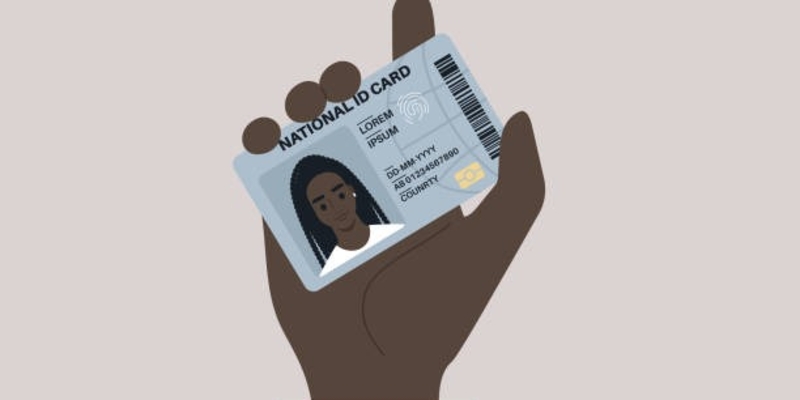Student loans are often one of the last pieces to fall into place when planning your financial future. From funding a college education that opens up career opportunities to maintaining steady finances despite economic uncertainty, student loans have been essential in helping countless students and graduates achieve their goals.
But if you're wondering what happens with those loans when you die, here's some information on their impact on your estate—and how best to prepare for such an eventuality.
Understanding the Basics of Student Loans and Death
When a person dies, student loans are typically discharged. This means that any remaining balance on the loan is wiped away and no longer owed by the deceased or their estate. However, some important exceptions exist:
Parent PLUS loans are taken out for a dependent student's tuition expenses. These loans become due immediately upon death and must be paid off soon afterward.
It is important to remember that the deceased might still have a cosigner on their loans—such as parents or guardians who co-signed with them. In this case, the cosigner will be held liable for any remaining balance if no other assets are available to settle it.
Federal Student Loan Balances Are Discharged Upon Death
If a deceased borrower had any federal student loans, their estate is not responsible for repaying the balance. Federal loans include Stafford Loans, Grad PLUS Loans, and Direct Consolidation Loans. Sometimes, private lenders may offer loan forgiveness or other assistance upon death.
It's important to note that if the deceased left behind an income-driven repayment plan, such as the Pay As You Earn (PAYE), that plan may remain active for up to 90 days after death. During this time, the loan servicer will be responsible for collecting any payments due and applying them to the balance before discharging it.
Private Student Loan Balances Are Not Discharged Upon Death

Private studenParent'sare Spouse'sharged upon death. Instead, the boy of a private loan could be passed on to the deceased’s estate or cosigner, depending on how the loan is structured.
In most cases, if no assets are available in the deceased’s estate to cover the remaining balance, the servicer will expect the cosigner or other person obligated on the loan to repay it. If no one can or is willing to do so, the lender may attempt to collect by taking legal action.
Inheriting a Parent’s or Slender'sStudent Loan Debt
If you are a deceased borrower's surviving spouse or child, you may be responsible for any parent PLUS loans taken out to cover tuition expenses when your loved one was attending school.
It’s important to talk with the loan servicer as soon as possible to determine how to discharge the balance. The loan servicer should be able to estimate how much needs to be paid and the time frame for repayment.
What to Do if You’re Struggling to Pay Off Your Student Loans
Several options are available if you struggle to pay off your student loans. You can look into loan consolidation or repayment plans that make it easier to manage your payments. You may also qualify for loan forgiveness or discharge if you meet certain criteria, such as working in public service or having a disability.
It’s important to keep in mind that you don’t have to tackle your student loan debt alone. Many resources are available to help, including online calculators and financial advisors who can provide personalized guidance. Knowing what steps you need to take now can help ensure that your loans are taken care don'ts nothing will happen in the future.
By understanding the basics of student loans and death, you can be better prepared if the unthinkable occurs. Knowing the regulations, repayment options, and potential consequences of loan default is essential for any borrower or cosigner—so make sure you’re always in the know regarding your student loans.
Preparing for the Future with Life Insurance Coverage

One way to prepare for the future is by taking out a life insurance policy to help cover any remaining student loan balances upon death. If you’re looking into this option, read up on the types of policies available and which may best suit your needs.
Remember that if you are the cosigner of a loan, taking out life insurance can also be a good way to protect your assets from having to pay off any remaining balances. This can be especially beneficial for families that have taken out multiple loans and may lack the resources to cover them all in the event of an unexpected death.
No one likes to think about their mortality, but preparing for the future is important. By understanding what happens to your student loans when you die, you can ensure they won’t become an unexpected burden on your loved ones after you pass away.
By taking the time to understand how student loan debt will impact your estate over time and by exploring ways to reduce your risk of defaulting on these loans, you can better prepare for any eventualities that might arise. That way, you can ensure that the financial burden won’t be left in the hands of those close to you should the worst happen.
Ultimately, it's important to remember that student loan debt doesn't have to be an overwhelming weight on your shoulders. With the right preparation and understanding of how loans work, you can ensure they don’t burden your loved ones after you pass away.
This could include looking into loan consolidation or repayment plans, taking out life insurance policies to cover any remaining balances, and researching forgiveness options if you meet certain criteria.
FAQs
Do student loans get forgiven if you die?
The answer to this question largely depends on your student loan type. Generally speaking, federal student loans are discharged upon death and no longer need to be paid off by your estate. Private student loan balances, however, are not discharged and must be handled according to the lender’s policies.
Is student debt forever?
It depends. If you have a federal student loan, your debt is discharged upon death and does not need to be paid off by your estate. Private loans, however, may remain due unless the lender forgives them. It would be best to talk to your lender about their policy for handling private student loan debt in case of death or disability.
At what age will my student loans be forgiven?
There is no set age at which your student loans will be forgiven. However, federal student loans are discharged upon death, while private student loan balances may remain due unless the lender forgives them. You should talk to your lender about their policy for handling private student loan debt in case of death or disability.
Conclusion
When it comes to understanding the death and student loan process, it is important to be prepared. If you are a parent or an individual with student debt, take the time to research what options are available in each situation. It is also smart to protect you and your family in case of sudden death. Whether that includes updating life insurance plans or getting debt relief through organizations, options are always available. You don’t need to feel alone on this journey; seek help if needed.
And remember, knowledge is power—armed with the right information and resources, you can make informed decisions for yourself and your loved ones. So ask yourself: What happens when you die? Before having these difficult conversations with close friends and family members, consider researching the basics of student loans, death, and what steps should be taken next.




